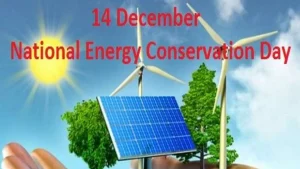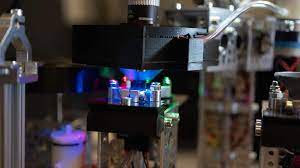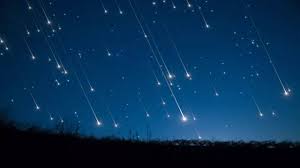Today Current Affairs: 15th December 2022 for UPSC IAS exams, State PSC exams, SSC CGL, State SSC, RRB, Railways, Banking Exam & IBPS, etc
Table of Contents
World Monkey Day 2022:

World Monkey Day is celebrated worldwide on 14th December, every year.
- Monkey Day has been created to celebrate monkeys and other non-human primates.
- A primate is any mammal of the group that includes lemurs, lorises, tarsiers, monkeys, apes, and humans.
- It is a great day when it comes to raising awareness about different types of monkeys and primates around the world, as well as the issues they face and how we can help them.
- Monkeys, also known as simians, live all over the world.
- More than 250 species of monkeys populate Africa, Central America, South America, and Asia.
- Monkeys are divided into two categories– Old World monkeys and New World monkeys.
- Old World monkeys are native to Africa and Asia while New World monkeys are indigenous to the Americas, but their homes are not the only ways in which they are different.
Family Pehchan Patra For J&K Residents:

The Government of India has recently decided to introduce a Family Pehchan Patra (FPP) for residents of the Union Territory of Jammu & Kashmir.
- Family Pehchan Patra will be an identity card with a unique 8-digit alphanumeric number (like in a PAN Card) to identify each family and its members through the head of the family.
- It will be a single identifier for every family and individual in the UT unlike the Aadhar card which contains information about an individual only.
- The card will contain details of all members of the family, including their names, ages, qualifications, employment status, etc. and will be linked with the Aadhaar and bank account number of the head of the family.
National Energy Conservation Day 2022:

National Energy Conservation Day is celebrated every year on 14th December 2022.
- The Ministry of Power, Government of India, launched the National Energy Conservation Awards in 1991 to recognise the contribution of industries and establishments in reducing energy consumption while maintaining their production through awards.
- The Bureau of Energy Efficiency (BEE) spearheads the celebrations every year.
- The first time the awards were given away was on 14th December, 1991.
- Since then, the day has been declared as National Energy Conservation Day. These awards are given away by eminent dignitaries at a function organised every year on the same day.
- The day focuses on making people aware of global warming and climate change and promotes efforts towards saving energy resources. It also highlights the achievements of the country in the fields of energy efficiency and conservation.
National Energy Efficiency Innovation Awards (NEEIA) 2022:
- To recognize outstanding work and innovative minds of India in the area of Energy Efficiency, NEEIA awards were started in the year 2021.
- The awards are evaluated based on Replicability, Affordability, Reliability, Impact on Energy Savings and Impact on Environment & Sustainability.
Launch of ‘EV-Yatra portal’ and Mobile App:
- The Bureau of Energy Efficiency has developed a mobile application titled “EV Yatra” that has been designed and developed to facilitate in-vehicle navigation to the nearest public EV charger and a web-portal to enable Charging Point Operators (CPOs) to register their charging details securely into the National Online Database.
Restoration Barometer Report 2022:

It is Released by IUCN, this report has highlighted the use of the ‘ Restoration Barometer tool’ as the only tool currently used by governments to track progress on the implementation of restoration targets
- The tool was 1st launched in 2016 as the Bonn Challenge Barometer
About the report:
- Restoration Barometer Report 2022 has highlighted that the investments of $26bn across 18 countries have brought 14 million hectares of degraded landscapes – an area about the size of Greece – under restoration.
- Restoration: Ecological restoration aims to recreate, initiate, or accelerate the recovery of an ecosystem that has been disturbed
- Bonn Challenge: The Bonn Challenge is a global effort to restore 150 million hectares of the world’s degraded and deforested lands by 2020 and 350 million hectares by 2030
- IUCN: IUCN is a membership union uniquely composed of both government and civil society organisations.
- Created in 1948 and headquartered in Switzerland, it is the global authority on the status of the natural world and the measures needed to safeguard it.
Forabot: The Fossil Sorting Robot

This new technology can automate sorting, manipulating and identifying microscopic marine fossils.
- Foraminifera (forams) are very simple microorganisms that secrete a tiny shell.
- They have existed on the ocean floor for more than 100 million years.
- They leave behind their shells when they die.
- Examining these shells gives scientists an insight into the characteristics of the oceans from a time when the forams were alive.
- Different types of foram species thrive in the ocean environment and physical inspection and sorting of forams require human time and effort.
- With an accuracy rate of 67%, Forabot automates this tedious process.
Corporate Average Fuel Economy (CAFE):

Car companies in India will have to cough up stiff penalties from April, 2023 with Parliament approving Energy Conservation (Amendment) Bill 2022 that stipulates heavy fines on a company’s annual domestic sales numbers for violation of mandated Corporate Average Fuel Economy (CAFE) score.
- Corporate Average Fuel Efficiency/Economy regulations are in force in many advanced as well as developing nations, including India.
- They aim at lowering fuel consumption (or improving fuel efficiency) of vehicles by lowering carbon dioxide (CO2) emissions, thus serving the twin purposes of reducing dependence on oil for fuel and controlling pollution.
- Corporate Average refers to sales-volume weighted average for every auto manufacturer.
- The norms are applicable for petrol, diesel, LPG and CNG passenger vehicles.
- CAFE regulations in India came into force from April 1, 2017.
- Under this, average corporate CO2 emission must be less than 130 gm per km till 2022 and below 113 gm per km thereafter.
CAFE (Corporate Average Fuel Efficiency) and BS6:
- CAFE (Corporate Average Fuel Efficiency) regulations are similar norms to BS6 but with a different approach towards reducing the carbon footprint in the exhaust gasses of the vehicle.
- CAFE majorly focuses on COx emissions. BS6, on the other hand, focuses on overall emissions which include NOx (Nitrogen Oxides), SOx (Sulphur Oxides).
- The CAFE regulations aim to reduce the overall COx (Carbon Oxides) from the exhaust of the vehicle.
- The reduced carbon footprint leads to increased fuel economy.
Geminids Meteor Shower:

In 2022, the Geminids will peak around December 13-14.
- Geminids comes from the constellation Gemini, from whose location in the sky the meteor shower appears to originate.
- The constellation for which a meteor shower is named only serves to aid viewers in determining which shower they are viewing on a given night.
- Meteors are usually fragments of comets.
- As they enter the Earth’s atmosphere at high speed, they burn up, creating a spectacular “shower”.
- The constellation is not the source of the meteors.
- If their peak coincides with the new moon, and if the weather is clear, the Geminids can produce approximately 100-150 meteors per hour for viewing.
- This year however, the moon is bright, and so only 30-40 meteors per hour will be visible in the Northern Hemisphere.
- The Geminids are unique because unlike most meteor showers, they originate not from a comet, but from an asteroid, the 3200 Phaethon.
- The 3200 Phaethon was discovered on October 11, 1983.
- It is named after the Greek mythology character Phaethon, son of the Sun God Helios.
- It takes 1.4 years to complete one round of the Sun.
- As the 3200 Phaethon moves close to the Sun while orbiting it, the rocks on its surface heat up and break off.
- When the Earth passes through the trail of this debris, the Geminids are caused.
Line Of Actual Control (LAC) : Recent Updates

Indian and Chinese soldiers suffered “minor injuries” after they were engaged in a face-off along the Line of Actual Control (LAC) in Tawang sector of Arunachal Pradesh on December 9.
- India shares 3488 Km of border with China that runs along the States of Jammu & Kashmir, Himachal Pradesh, Uttarakhand, Sikkim and Arunachal Pradesh.
- The border is not fully and officially demarcated.
- The Line of Actual Control (LAC) is a demarcation line that separates Indian-controlled territory from Chinese-controlled territory.
- LAC is currently the de-facto border between the two countries, and the process of clarifying and confirming the Line of Actual Control (LAC) is in progress.
- The Line of Actual Control (LAC), is divided into three sectors: western, middle and eastern.
- Western (Ladakh, Kashmir),
- middle (Uttarakhand, Himachal) and
- eastern (Sikkim, Arunachal).
- As LAC is not fully and officially demarcated, it has led to differing perceptions regarding the alignment, with China making territorial claims in at following areas.
- The countries disagree on the exact location of the LAC in various areas, so much so that India claims that the LAC is 3,488 km long while the Chinese believe it to be around 2,000 km long.
- The two armies try and dominate by patrolling the areas up to their respective perceptions of the LAC, often bringing them into conflict.
India Internet Governance Forum (IGF): Three Day Event

The India Internet Governance Forum (IGF), a multi stakeholder platform, is conducted a three-day hybrid event from December 9 to December 11, 2022.
- The India Internet Government Forum is an initiative associated with the UN Internet Governance Forum (UN-IGF).
- The Internet Governance Forum (IGF) is a multi-stakeholder platform bringing representatives together from various groups, all at par to discuss public policy issues related to the Internet.
- The event’s goal is to discuss the roadmap to digitization and to reaffirm India’s place on the global stage by emphasising its role and importance in international policy development on internet governance.
- Theme of IIGF 2022: ‘Leveraging Techade for Empowering Bharat’.
- India Internet Governance Forum(IIGF) has been constituted in conformance to IGF-Paragraph 72 of the Tunis Agenda of the UN-based Internet Governance forum (IGF).




